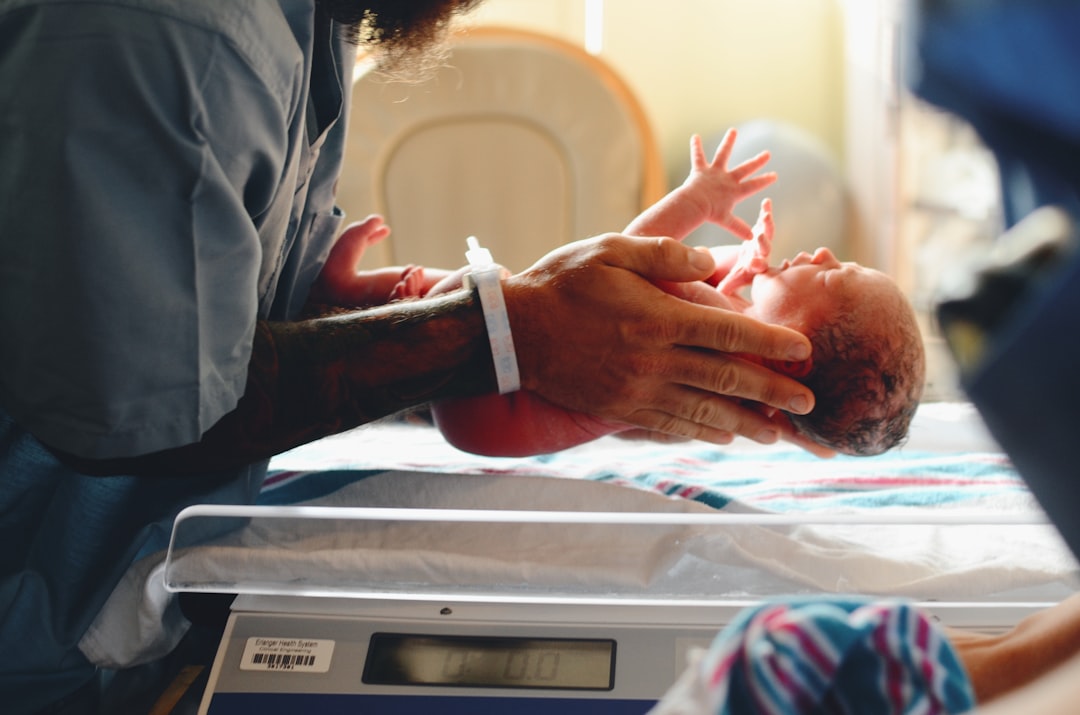They say it was a shocking sight,
After the field was won,
For many thousand bodies here
Lay rotting in the sun;
But things like that, you know, must be
After a famous victory.”
― Robert Southey, Poems by Robert Southey
ISIS SCARS REMAIN: FORCED ABORTIONS AND SOCIAL EXILE FOLLOW IRAQ’S YAZIDI WOMEN, FORMER SEX SLAVES
BAGHDAD, Iraq — It is a searing scene: wisp-like women huddled together, wedged into the confines of tattered tents beneath the blazing Iraq sun. Some days, the small group returns to their ancient villages in the foothills of Sinjar Mountain. Other times, they visit old and shattered camps for basic supplies or because gunfire is ricocheting through their homes once again. Some smile softly. Others hide behind blankets of long, flowing hair.
But they all carry a deep and dark secret: they are all survivors of ISIS sex slavery and, at some point, forced to abort a pregnancy conceived by an ISIS fighter. Most of the world is unaware of their trauma, or has simply moved on to newer emergencies, leaving ISIS and its atrocities for the history books. These women are unrelenting reminders that savagery leaves scars that remain long after the headlines stop.
“Before the liberation, many survivors were able to contact their families during price negotiations to buy them back. Many had to inform their families that they were pregnant now,” says Wansa Shamoon, a communications officer for the Coalition for Just Reparations (C4JR), an alliance of Iraqi NGOs calling for comprehensive reparations for survivors of atrocity crimes perpetrated during the ISIS conflict in Iraq. “Many families coerced them to have an abortion before or after returning. Some decided not to do this, to stay with their children in captivity instead. The families accept the survivors, but only without children.”
Wansa tells me softly that the abortions took place during all stages of pregnancy, including very late-term — sometimes just weeks or days before the due date.

In August 2014, ISIS assailed Sinjar, the ancestral homeland of the embattled Yazidi population, a small ethnoreligious minority that worships the sun and an angel named Tawusî Melek, and long pre-dates Islam. Viewing them as “infidels,” ISIS slaughtered thousands of their boys and men, and kidnapped thousands of girls and boys to keep as sex slaves throughout their brutal reign, controlling large swaths of Iraq and Syria.
It’s a diabolical trauma many Yazidi women faced: either terminate a pregnancy or be entirely discarded from their deeply closed and conservative community. Many of the survivors I have spoken to in years past have told me that ISIS captives mandated they take so many birth control pills that their bellies ached. Still, many Yazidis found themselves pregnant as a result of rape. Sadly, ISIS fighters often sold the Yazidis — including girls as young as eight — multiple times at horrific slave markets, meaning many do not know which fighter is the father. And if one ISIS fighter was killed in battle, the women were quickly sold off to another enslaver.
In some cases, the ISIS fighters, using ISIS doctors, made the Yazidi women get abortions, despite this being “haram” (forbidden) in Islam, underscoring the hypocrisy within the ranks of the extremist outfit.
“These were doctors working for ISIS, in the interest of ISIS. But [the women] didn’t get any care after that,” Wansa explains. “This left them with a lack of hope.”
Salim Mohammad Salah, director of the Orphanage Foundation in Iraq, concurs that the number of those compelled to abort their children during or after their confinement is painfully staggering.
“Yes, this is against the Islamic religion,” he notes. “But the families were also distraught. They don’t want to raise ISIS children in their community.”
In other situations, the women did not find out they were expecting until after they had escaped or been rescued and returned to their mourning communities.
From the beginning of the terrorist onslaught, it was all an unfamiliar concept for the Yazidi population, which numbers around 500,000 in Iraq. Their religious leaders initially shattered much of the taboo around rape as a weapon of war by announcing that the women were victims and must be welcomed home.
Yet their doctrine is that to be Yazidi; one must be born Yazidi. Converts are not accepted. And as per cultural custom and Iraqi law, the child must take on the father’s religion, which in the ISIS era, is Islam. The choices are all horrific for those carrying children, and decisions are often made for the young women, even when they do not want an abortion.
“The victims are our daughters and sisters, but it is unacceptable in our religion to allow the birth of any children if both parents are not Yazidis,” Baba Sheikh, the religious chiefdom in the Yazidi community, recently told Voice of America in a phone interview. “It is also tribally unacceptable and a source of shame. If such children are born, wouldn’t people ask who their fathers are? Are they Afghans? Are they Europeans?”
Complicating the matter even further is that abortion is illegal in Iraq. Thus, the procedure is driven underground, with medical professionals sworn to secrecy. Sometimes the abortions are performed using potentially dangerous means, risking the woman’s life once again.
There are no statistics on how many Yazidis have had abortions before or after coming home. The topic is shrouded in secrecy, and many squirm with discomfort if the matter is broached. Others say in hushed tones that when women are brought back, they are subject to so-called virginity tests, an invasive practice that often retraumatizes and induces even more shame and fear.
Activists are slowly starting to speak out, stressing the need for more psychological help and guidance from the international community.
“There is a real shortfall on this side. NGOs try to provide these girls some mental rehabilitation, but it’s useless,” Salim laments. “Often, these survivors refuse, or their family refuses [to talk about this].”
Then there are those who have children from their time under ISIS, either because abortion wasn’t available due to heavy fighting or because they were determined to carry the pregnancy to term. Sometimes, these women choose to remain in ISIS subjugation rather than lose their child.
Besides the stigma and social shunning mothers are forced to endure, their innocent children are also thrown into an ostracized life. They are primarily stateless. There is no father to put on the birth certificate, and Yazidi moms refuse to register their babies as Muslim, as per Iraq’s Islamic Code. This results in no documents to move around, go to school, or prove that they are part of the world. Furthermore, if other families in camps find out one is a child of ISIS, they are tormented and teased, relegated to an outcast existence.
Wansa say it is a profound struggle to get through each day without a male caregiver.
“There is no breadwinner, no money, or no medical support,” she says with a heavy sigh. “The U.N. and other NGOs provide some help, but these survivors need medical help, especially those forced to do an abortion.”
CLICK TO READ MORE IN THE DALLAS MORNING NEWS
BIG BROTHER IS SPYING ON YOU EVERY DAY. HERE’S WHAT YOU CAN DO.
George Orwell warned in his doomsday “1984” classic that if one wants to keep a secret in the dystopian future, one will need to hide it from themselves. The same year which bears the book’s namesake, Washington Post columnist turned MIT fellow Michael Schrage cautioned – even before the first dot-com domain was registered – that “Even the humble floppy disc would soon become a source for snooping.”
Thirty-eight years later in an era routinely dubbed as “post-digital,” where digital communications are no longer additives to productivity rather the entire makeup of how the world functions, we have all come to learn and blindly accept that “Big Brother” – both the private and public spheres – can access, track, store, and share almost every single move we make.
Whether we opt-in or opt-out, “Big Tech” and big governments alike collect troves of data from each of us every single day.
Amazon’s Alexa operates in our homes. Apple’s Siri dominates our pockets. Fitbit and other health-tracking wearables log how many steps we take. Google Maps constantly pings your location and UberEATS knows our food preferences and calorie intake. Even the vehicle identification number (VIN) has been morphed into a mechanism for tracking, charging your bank accounts, and remotely accessing and controlling your vehicle in the name of safety, security, and convenience.
As science fiction writer and activist Cory Doctorow points out in his recent Medium article, these Big Brother capabilities have even been deployed by tractor makers like John Deere, the unmistakable and proud symbol of the American heartland.
Big Brother is Spying on You Every Day. Here’s What You Can Do.
In early May, reports emerged from the Ukrainian war theater that some of Deere’s equipment stolen by Russian invaders and shipped to Chechnya had been rendered useless when the manufacturer leveraged a “kill switch” technology to disable the machines. Keeping stolen equipment out of the hands of bad guys and ruthless armies sounds great, but as Doctorow emphasizes, the reality below the feel-good surface story is an extremely slippery slope of concerning and perhaps insurmountable implications.
“(It is) a far scarier parable about the way that cyber warfare could extrude itself into the physical world. The (kill switch) was invented to thwart American farmers. Deere bundled the data with the farmer and sold both to Monsanto,” he writes. “It’s important not to get swept up in the industry’s self-serving cheerleading about these kill-switches working in ways we like, because of all the ways they can go wrong.”
He points out that in 2017 John Deere explained in a copyright brief that farmers, despite the tens of thousands of dollars spent each year on farm equipment, would never fully own their tractors outright because, “the software that animates these tractors belongs to John Deere for the full term of the copyright — 90 years — and the farmers merely license that code.”
Each time one agrees to the terms of service, they agree to such a contract and essentially consent to their data being pawned to the likes of biotech giants like Monsanto, a major producer of genetically engineered crops.
We also see similar schemes and alarmingly blind trust on behalf of consumers in the prescription medicine markets. Prescription drug monitoring programs (PDMPs) are state-sponsored electronic databases that record controlled substances prescribed by medical providers. Its benefits are sold to the public as a means to help professionals determine drug abuse patterns. However, that private data usually ends up in the government’s hands or with third parties whose motives are unknown.

Three years ago, the U.S. Food and Drug Administration (FDA) announced a new initiative to construct a comprehensive index on prescription drugs and which patients in which areas were using certain drugs. The intent is to apply machine learning and artificial intelligence (AI) to determine and predict vulnerable communities and patient populations.
So, your home, your car, your phone, and your healthcare are all under the control of everyone but you. How much worse can it get?
Well, agencies have aggregated billions of records from public and private sources in mass-scale data mining operations of financial transactions from corporate directories, car rental and hotel transactions, taxi, and ride-sharing destinations, and even law enforcement networks. In addition, platforms like Gmail and Yahoo scan personal emails to curate tailored data profiles which they then sell or provide access to marketers (you can opt-out of targeted advertising in your settings to at least limit the data assemblage) – both make a profit and you receive nothing.
There are upwards of four thousand data brokers in the United States alone whose sole task is to harvest, hold, and sell your personal information to the highest bidder. Even government agencies are said to have hired private firms to aid in surveilling social media. Those firms store everything from your birth date to Social Security Number and home address histories to driver’s license numbers and records.
Furthermore, roads, bridges, elevators, and streets are all stuffed with cameras, facial recognition technology, and automatic license plate readers. This of course happens all while hardly a day goes by when we don’t hear of a significant breach at a popular company or essential government agency. What’s worse, this is now normalized. It is expected. Few feathers are ruffled when we are routinely and somewhat indignantly notified that our information and data is now out there in the hands of cybercriminals.
It is enticing to peg all the “New Age” spying on the emergence of everything from Facebook to Snapchat and TikTok, but truth be told, the private-public coordination dates to the mid-1990s when the intelligence community recognized the supercomputing opportunities and started slipping funds across Northern California for a foot-in-the-door of mass scale information gathering. This, of course, was based on the now proven assumption that we’d give away our data, or at least the access to it, to the monopoly providences of social media and the like, even if that meant an apparent violation of the First or Fourteenth Amendments.
Information gleaned can be shared across agencies, all levels of government, and even allied foreign governments, with little control or oversight as to how it is disseminated once it leaves the deriving agency’s grasp, susceptible to misinterpretation, overreach, and abuse.
Consult experts on the matter and the professional tendency is to chalk it all up to a creepy coincidence followed by verbose assurances that it stems from a profile already agreed upon by users and that it would be illegal for any institution to listen, collect, store, distribute, or sell, without a warrant or consent.
And don’t safely assume that those end-to-end encrypted messenger systems are all cozy in their confidentiality.
“WhatsApp is easy for us to get into,” a western security contractor friend in Mexico City tells me breezily over cigars and tequilas in the bustling capital.
Regardless of tweaked privacy policies, legislation, or citizen blowback, snooping and hacking are here to stay. So what is a regular American supposed to do amid this seemingly insurmountable and irreversible onslaught of technological abuse and data misuse?
CLICK TO READ MORE IN LIBERTY DISPATCHES
Please follow and support my investigative/adventure/war zone work for LIBERTY DISPATCHES here: https://dispatch.libertyblockchain.com/author/holliemckay/
For speaking enquires please contact meta@metaspeakers.org
For those interested in learning more about the aftermath of war, please pick up a copy of my latest book “Only Cry for the Living: Memos from Inside the ISIS Battlefield.”
If you want to support small businesses:
And also now available Down Under!
My new coffee table book with the amazing photographer @JakeSimkinPhotos is additionally available for pre-order, slated for release later this Spring: Afghanistan: The End of the US Footprint and the Rise of the Taliban Rule
Thanks again for your support. Follow me on Instagram and Twitter for more updates. Please consider a paid subscription to help me continue to do this work.











DISPATCHES FROM IRAQ: The ongoing impact of ISIS and a little note about protecting your privacy